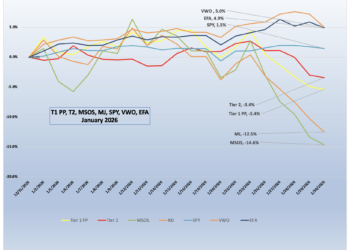Texas and California are both keeping up the push to illegalize intoxicating hemp-derived cannabinoids.
In Texas, the state Senate on Aug. 1 approved SB 5, which would ban hemp products containing any cannabinoid other than cannabidiol (CBD) or cannabigerol (CBG). It now heads to the Texas House of Representatives. But whether it will move forward is uncertain as most Democrat representatives fled the state to prevent a vote on redistricting.
SB 5 was introduced in special session by Sen. Charles Perry following Gov. Greg Abbott’s veto of a similar bill, SB 3. Abbott, in a statement, said he vetoed the legislation because he was concerned about potential litigation. At the time, an Arkansas federal court had ruled the 2018 Farm Act that legalized hemp likely preempted a state law to ban HDCs and issued a temporary injunction preventing the implementation of the law. Two days after Abbott’s veto, the Eighth Circuit Court of Appeals overturned the lower court’s injunction.
Abbott urged the legislature to pass a bill in special session that would take care of his greatest concern, protecting minors from intoxicating hemp.
Lt. Gov. Dan Patrick is leading the call to illegalize hemp products containing THC. He says “bad actors” have taken advantage of a loophole of the Farm Act and have been producing products with “dangerous levels” of THC marketed toward children with colorful packaging looking like candy or sweets.
“I made Senate Bill 5 a top legislative priority for the Senate because we refuse to let these rogue retailers exploit loopholes in state law to sell dangerous THC products into our communities,” he said in a July 30 statement.
SB 5 would create three felonies for manufacturing, delivering or possessing with the intent to deliver illegal consumable hemp products. It also creates eight misdemeanor offenses, including a Class C offense for possession of illegal hemp products.
Legal consumable hemp products would need to be tested to confirm no detectable amount of THC and be registered with the state. Any business selling legal HDC products would need permission from the property owner.
Patrick said the bill has support from every state law enforcement agency, the Texas Medical Association and the Texas Pediatric Society. However, a recent poll shows nearly 80% of voters approve of keeping HDCs legal, according to KVUE.
California holds public hearing
In California, the Department of Public Health held a public hearing as part of its process to make permanent the state’s emergency rule banning intoxicating HDC products.
Similar to the Texas proposal, California prohibited all HDC products with any amount of THC under an emergency rule ordered by Gov. Gavin Newsom in September. The emergency ban was extended in March while the department goes through the legal process of making the rule permanent.
DPH hopes to have the regulation package filed with the Secretary of State by Nov. 6, said a department spokesperson.
During the July 28 hearing, more than 25 people spoke. Those in the hemp industry and patient advocates welcomed some restrictions, particularly with marketing and sales to minors, but felt the language was too restrictive.
“We support the intent of DPH’s proposed regulation to prevent the sale of intoxicating hemp products in smoke shops, liquor stores, gas stations and other convenience stores, especially in a manner accessible to minors,” said Ellen Komp, deputy director of California NORML. “However, we believe the definition of ‘non-intoxicating hemp products’ is overly restrictive in requiring that products have ‘no detectable amount’ of THC, as this wrongly excludes medicinally useful, high CBD extracts with negligible psychoactivity.”
Rand Martin of the U.S. Hemp Roundtable said the ban has cost the state $100 million in annual tax revenue. He recommended 10 mg of THC per serving and 30 servings per package to allow for monthly medicinal use.
Those in the licensed cannabis industry, by and large, supported the rule but would rather see hemp regulated just like marijuana and allowed to be manufactured and sold in licensed businesses.
Annie Aubrey, a licensed dispensary owner, said three smoke shops have opened around her business. “We need it to be regulated under the same umbrella,” as licensed cannabis, otherwise, it’s “hurting the market and hurting the kids.”
And then there were those who outright supported the ban on intoxicating hemp. One woman, who was “thrilled” that the emergency regulations may be made permanent, said she doubted patient claims as to the efficacy of HDCs.
Patient Jakki Hernandez, however, said “Bans don’t protect people, it just abandons oversight.” She wants to see hemp regulated like it is in Minnesota, which has a two-tier licensing system. “There should be parity. Parity, parity, parity.”
U.S. Senate kills outright ban
Meanwhile, the U.S. Senate passed a funding bill that was stripped of language banning HDCs with any “quantifiable” amount of THC.
Sen. Rand Paul’s, R-Kent., amendment striking the language in the Agriculture, Rural Development, Food and Drug Administration, and Related Agencies Appropriations Act passed on Aug. 1, according to Marijuana Moment.
However, Kentucky’s other senator, Mitch McConnell, who introduced the THC ban, criticized the move on the Senate floor.
“For the sake of those misguided by my opponents on this issue, let me clarify a few things. You will hear from some that this language would have meant the total destruction of the hemp industry. They’re wrong. Under my language, industrial hemp and CBD would have remained legal. Period,” McConnell said in a statement.
He said he allowed the language to be stricken in order to move the appropriations bill forward. “But my effort to root out bad actors, protect our children, support farmers, and reaffirm our original legislative intent will continue.”
The language remains in the House version of the same bill, which was approved June 23 by the House Appropriations Committee. The House is currently in recess.












